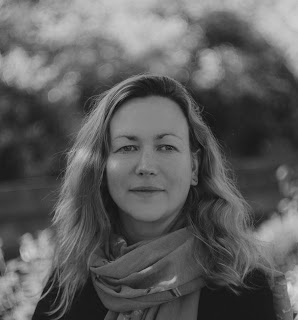I didn’t mean to write a Brexit novel. In fact, I really, really didn’t want to do that. I don’t even mention the word Brexit anywhere in When The Dead Come Calling.
What I wanted to do was write about a place and how it has been shaped by its past. More specifically, about how crimes of the past don’t just go away; how what we bury doesn’t just disappear. That is true in a literal sense for one of the characters when an unsolved decades-old crime against them becomes part of the present day police investigation into a brutal murder. It also happens in a more metaphorical sense for the village of Burrowhead – the fictional setting for my book on the Northwest coast of England – and to our society as a whole.
We have a past, here in the UK. It’s a deeply unpleasant one, and it is not done with us yet. What I was really writing about was a society on the verge of breaking, and societies don’t break overnight. To see the cause, to understand why a place becomes what it is, and fails the way it does, then we have to look back at what has happened there over generations, even over centuries.
In the present day, the villagers of Burrowhead are desperate. The village is isolated, miles from the nearest town, sitting on a wind-battered coast, and with very little left in the way of facilities. There is one shop, the Spar, run by Pamali Patel. There is a rusty playground – the site of the present-day murder that opens the book. Unemployment and poverty have led to hopelessness, which has brought with it resentment, blame, racism, and a deep-seated fear of otherness.
The unemployment was caused, in part, by the closure of a nuclear site which, when it opened generations before, had brought jobs and hope – and incomers. Generations before that, the village had been more insular, people travelled less and lived where they grew up, and the smaller population felt safe. Except that, generations before that, the village was embroiled in the slave trade, suffered through crop failures and disease which led to hopelessness, which brought with it resentment, blame, racism, and a deep-seated fear of otherness. And before that…?
‘
The layers of it,’ says DI Georgie Strachan, the hero of my story. ‘The terrible layers of it.’
Of course, there are always different perspectives to consider. In the book I use multiple points of view to convey the experiences of people who have been shaped in very different ways. We see the kindness of one of the older villagers, his genuine desire to save the last remnants of his community and way of life. We see the village through the eyes of a visiting police officer, horrified by the levels of prejudice going seemingly unchecked. We see the perspective of a local woman who loves her home despite its failings, who is angry and frustrated by the lack of help and infrastructure. We see teenagers desperate to leave; we even see the beauty of the landscape, the wild coast, and the vast ever-changing sky.
But despite how much can change, there is something cyclical about how we seem to improve and then regress, as a society, and for this writer at least, we seem to be in a period of regression right now. I’m writing this blog from my home in the Scottish highlands (cue a chorus of ‘not us’) and I grew up in London (ditto) but if anything When The Dead Come Calling is about how we are all complicit, in a way. If our society is breaking, that means it has been breaking for a long time, and we have failed to intervene.
Fergus Strachan, the husband of my DI, is a man who literally picks up other people’s rubbish. He’s also delving into the past while the present-day police investigation pushes forwards. Himself unemployed, he is becoming fascinated by the history of Burrowhead, by everything that the villagers have done and been through, and in that way we begin to see not only the guilt buried there, but some hope as well. I am, perhaps surprisingly, an optimist. What he will eventually find might turn things around again. Though, I must warn you, probably not until later in the series…
For now, the village of Burrowhead is desperate and, as has happened before, those who are seen as different are being blamed.
Look out of the window. It’s happening already.
-----
When The Dead Comes Calling by Helen Sedgwick. (Published by Point Blank) Out Now
 In the first of the Burrowhead Mysteries, an atmospheric murder investigation unearths the brutal history of a village where no one is innocent. When psychotherapist Alexis Cosse is found murdered in the playground of the sleepy northern village of Burrowhead, DI Strachan and her team of local police investigate, exposing a maelstrom of racism, misogyny and homophobia simmering beneath the surface of the village. Shaken by the revelations and beginning to doubt her relationship with her husband, DI Strachan discovers something lurking in the history of Burrowhead, while someone (or something) equally threatening is hiding in the strange and haunted cave beneath the cliffs.
In the first of the Burrowhead Mysteries, an atmospheric murder investigation unearths the brutal history of a village where no one is innocent. When psychotherapist Alexis Cosse is found murdered in the playground of the sleepy northern village of Burrowhead, DI Strachan and her team of local police investigate, exposing a maelstrom of racism, misogyny and homophobia simmering beneath the surface of the village. Shaken by the revelations and beginning to doubt her relationship with her husband, DI Strachan discovers something lurking in the history of Burrowhead, while someone (or something) equally threatening is hiding in the strange and haunted cave beneath the cliffs. 

No comments:
Post a Comment